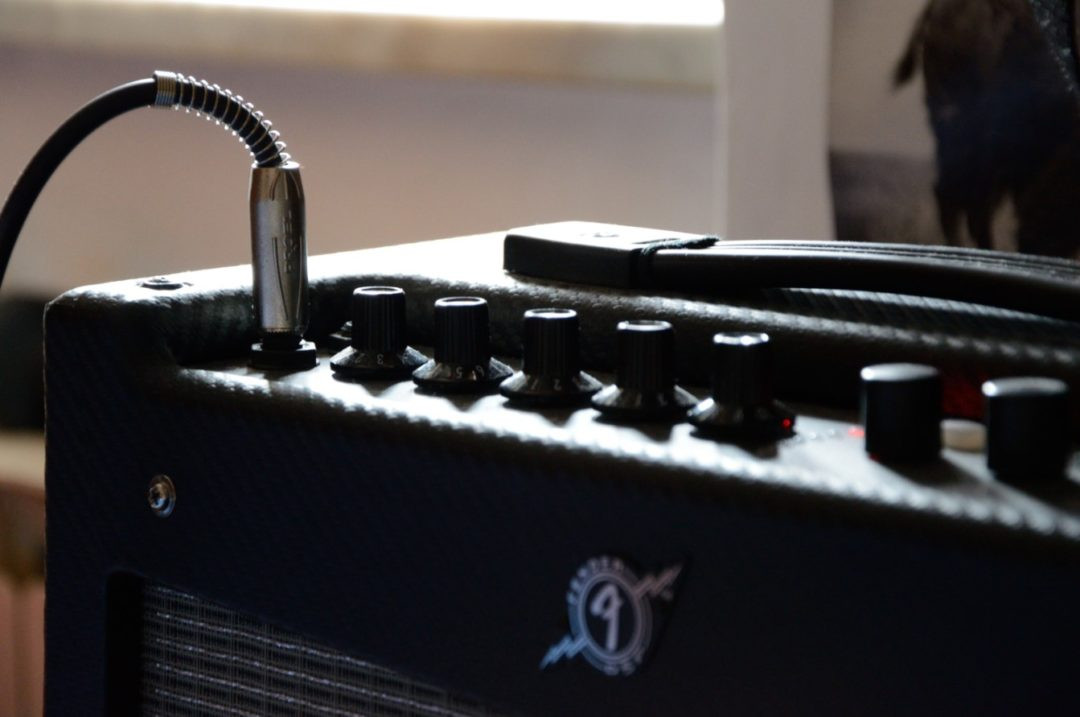 Playing Bass Guitar Through a Guitar Amp
Playing Bass Guitar Through a Guitar Amp
The question often arises among musicians, especially those experimenting with different instruments: Can you plug a bass guitar into a guitar amp? The short answer is yes, it’s technically possible. However, just because you can doesn’t mean you should, or that it’s the best idea for your sound or your equipment. While a guitar amp will produce sound when you plug in a bass, it’s far from ideal and can even lead to damage. Let’s dive into why using a bass guitar on a guitar amp is generally not recommended and what you should consider before attempting it.
Bass Amps vs. Guitar Amps: Understanding the Key Differences
To understand why playing a bass guitar through a guitar amp can be problematic, it’s crucial to recognize the fundamental differences in design and purpose between bass amps and guitar amps. These differences are primarily centered around frequency response and power handling.
Guitar amps are engineered to amplify the frequencies produced by electric guitars, which are primarily in the mid to high range. They are designed to enhance the bright, articulate tones of a guitar, often focusing on clarity and definition in the higher frequencies. The speakers in guitar amps are typically smaller and built to reproduce these frequency ranges efficiently.
Bass amps, on the other hand, are specifically designed to handle the much lower frequencies produced by a bass guitar. Bass guitars operate in a lower register, producing deep, rumbling tones. Bass amps are built to reproduce these low frequencies powerfully and cleanly. This involves several key design features:
- Larger Speakers: Bass amps usually feature larger speakers (10″, 12″, or even 15″) compared to guitar amps. These larger speakers are capable of moving more air, which is essential for reproducing low frequencies effectively.
- Robust Construction: Bass amps are built to handle the higher power output and physical demands of low frequencies. They are often more ruggedly constructed to withstand the vibrations and pressure generated by bass tones.
- Frequency Response Curve: The frequency response of a bass amp is tailored to emphasize the low and low-mid frequencies, ensuring that the bass guitar’s fundamental tones are reproduced accurately and powerfully. Guitar amps, conversely, often roll off at lower frequencies.
These fundamental differences mean that while a guitar amp can amplify a bass signal, it’s not designed to do so optimally. The smaller speakers and frequency response of a guitar amp are not well-suited to reproduce the full sonic range of a bass guitar.
The Potential Dangers of Using a Guitar Amp for Bass
Playing a bass guitar through a guitar amp isn’t just about sound quality; it also carries potential risks to your equipment. The primary danger lies in the difference in frequency handling and power output.
-
Speaker Damage: Bass guitars produce significantly lower frequencies than electric guitars. These low frequencies require speakers to move more extensively. When a guitar amp speaker, designed for higher frequencies, is forced to reproduce deep bass tones, it can overextend and potentially damage the speaker cone or voice coil. This is especially true at higher volumes where the speaker is pushed to its limits. The speaker might tear, distort permanently, or even blow out completely.
-
Amplifier Strain: Bass signals often have higher peak power demands due to their low-frequency nature. A guitar amp’s power section may not be designed to handle these peaks consistently. While less common than speaker damage, prolonged use of a bass guitar on a guitar amp, especially at higher volumes, could potentially strain the amplifier components over time.
-
Poor Sound Quality: Even if you avoid damaging your amp, the sound quality is likely to be significantly compromised. A bass guitar played through a guitar amp often sounds thin, muddy, and lacking in low-end depth and punch. The guitar amp simply cannot reproduce the full spectrum of bass frequencies effectively. Instead of a rich, full bass tone, you might get a sound that resembles a weak, undefined low guitar tone.
Tips to Minimize Risk if You Must Use a Guitar Amp for Bass
While it’s generally best to avoid using a bass guitar on a guitar amp, there might be situations where you have no other option. If you absolutely must use a guitar amp for your bass, take these precautions to minimize the risk of damage and improve the sound as much as possible:
-
Keep the Volume Low: This is the most crucial tip. Lower volumes reduce speaker excursion and strain on the amp. Playing at low volumes will significantly reduce the risk of speaker damage. Aim for a volume level that is just loud enough for practice or quiet jamming, and avoid pushing the amp hard.
-
Avoid Deep Bass Frequencies on Your Bass: If your bass has EQ controls, consider rolling off some of the extreme low end. This can help reduce the strain on the guitar amp speaker. Similarly, avoid using effects that boost low frequencies, like octave pedals set an octave down.
-
No Effects, Especially Distortion: Effects, particularly distortion, overdrive, and fuzz, can add extra stress to the speaker. These effects often introduce complex harmonics and can increase speaker cone movement. Avoid using any effects pedals when playing bass through a guitar amp, especially distortion, which can quickly lead to speaker damage.
-
Use the Clean Channel: Stick to the clean channel of the guitar amp. Overdriven or distorted channels are more likely to push the speaker beyond its safe limits when handling bass frequencies.
-
Avoid Tube Amps (Crucially Important): Tube amps are particularly vulnerable to damage from bass frequencies. The vibrations from bass can physically damage the tubes themselves, and the output transformers in tube amps are often not designed for the demands of bass frequencies. Playing bass through a tube guitar amp is highly discouraged and can be expensive to repair. Solid-state amps are generally more robust in this regard, but still not ideal.
-
Consider Using a DI Box: If you need to amplify a bass guitar and only have a guitar amp available, consider using a DI (Direct Injection) box. A DI box allows you to send a balanced signal directly to a PA system or recording console. You could then monitor yourself through headphones or small nearfield monitors, bypassing the guitar amp speaker entirely and eliminating the risk of damage.
Conclusion: Bass Amps for Bass Guitars, Guitar Amps for Guitars
While technically possible, using a bass guitar on a guitar amp is generally not a good idea. It compromises sound quality and carries a significant risk of damaging your guitar amp, particularly the speaker. Guitar amps are designed for the frequency range of electric guitars, not the lower frequencies of bass guitars.
For the best sound and to protect your equipment, always use the right tool for the job. Use a bass amp for your bass guitar and a guitar amp for your electric guitar. If you occasionally need to amplify a bass guitar and don’t have a bass amp, a PA system or DI box is a much safer and often better-sounding alternative to a guitar amp. Investing in a dedicated bass amp will ultimately provide a far superior playing experience and ensure the longevity of your equipment.
People Also Ask
Is it Safe to Play a Bass Through a Guitar Amp?
Technically, yes, it is possible to get sound, but it is generally not safe for your equipment in the long run, especially at higher volumes. Guitar amps are not built to handle the low frequencies of a bass guitar, which can damage the speaker or other components. To minimize risk, keep the volume very low, avoid effects, and ideally use a solid-state amp rather than a tube amp. It’s always better to use a bass amp for a bass guitar.
Do You Need a Special Amp for a Bass Guitar?
Yes, absolutely. A bass amp is specifically designed to handle the deeper frequencies and higher power output of a bass guitar. Using a bass amp ensures significantly better sound quality, providing the deep, rich tones a bass guitar is meant to produce. Crucially, it also drastically reduces the risk of damaging your equipment. Investing in a bass amp is essential for any bass player.
Can You Play Bass With an Amp?
Yes, you can play bass with an amplifier. However, while a guitar amp can function as an amplifier for a bass guitar in a pinch, it is far from ideal. For optimal performance and to avoid potential damage, it is always best to use a bass amp designed for the specific frequency range and power requirements of a bass guitar.
Can You Play Bass Through a Digital Guitar Amp?
Yes, you can play bass through a digital guitar amp, and they are sometimes slightly more forgiving than traditional tube amps due to their solid-state nature and sometimes more robust speaker designs. However, even digital guitar amps are typically not optimized for bass frequencies. While they may handle low volumes somewhat better than traditional guitar amps, the sound will still be less than ideal, and there remains a risk of damaging the speaker if the amp is pushed too hard, especially at higher volumes or with bass-heavy presets. For the best results and safety, a dedicated bass amp is still recommended.

